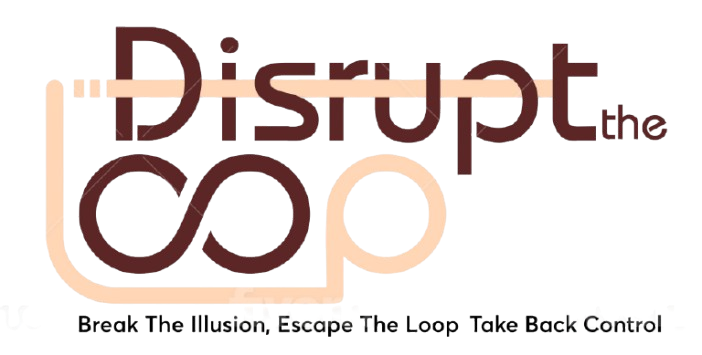The Strange Reason We Sabotage Success That Comes Too Easily
Ever notice how when something in your life suddenly starts working effortlessly, you find a way to mess it up?
- You finally start getting good grades without killing yourself studying… so you start skipping class.
- Your side hustle begins making easy money… and suddenly you lose motivation.
- Your relationship is healthy and drama-free… so you pick a fight over nothing.
This isn’t just self-sabotage—it’s a deeply ingrained mental program that makes ease feel wrong. If success doesn’t come with struggle, we subconsciously try to create problems to make it feel “earned.”
The Blackjack Effect: When Winning Feels Like Cheating
Picture yourself sitting at a blackjack table. The dealer shows a ten or an ace.
What happens?
- Your stomach knots up.
- Your brain starts whispering, “I’m going to lose.”
- Your confidence vanishes.
- You make panicky decisions that almost guarantee a bad outcome.
But here’s the crazy part: even if you were calm and played perfectly, your brain might still fight against winning.
Why?
Because deep down, we’ve been conditioned to believe that winning without suffering isn’t really winning at all.
Why “No Pain, No Gain” is Brainwashing You
You’ve heard these phrases all your life:
- “Nothing worth having comes easy.”
- “You have to pay your dues.”
- “By the sweat of your brow, you shall eat.”
These aren’t just motivational sayings. They’re mental programming running in the background of your brain. Even if you consciously reject these ideas, they still operate beneath your awareness.
Your subconscious follows this equation:
Value = Suffering × Outcome
If suffering approaches zero, your brain starts believing the outcome must also be worth zero—no matter how amazing it is.
Why “Manifestation” Feels Fake (and Why It Backfires)
This is why all those manifestation techniques you see on social media often fail spectacularly:
- You visualize success and try to feel good… but anxiety spikes instead.
- You affirm “money comes easily to me”… and then blow your paycheck on something dumb.
- You act “as if” you’ve already achieved your goal… and feel like a total fraud.
Your brain isn’t broken. It’s correcting an error.
Success that comes too easily triggers a response that says, “Wait! I didn’t suffer enough for this! This must be a mistake!”
The result?
- You unconsciously sabotage your success.
- You develop physical symptoms like stress or exhaustion.
- You create problems to make success feel more “earned.”
The Easy Knowledge Problem: Why We Insist on Learning the Hard Way
This glitch also affects how we learn.
Think about it:
- Your parents gave you advice that you ignored—until you had to learn the hard way.
- Your friends warned you about red flags in your relationship—but you dismissed them.
- You knew how to manage money—but you ignored the basics until you were in debt.
We’ve been programmed to believe that knowledge without pain doesn’t count.
One of my friends lost $50,000 gambling over the years. He knew the statistics. He understood how casinos manipulate players. But that knowledge didn’t feel real until he “paid” $50K in suffering to learn the exact same lesson.
5 Signs You’re Stuck in the “No Pain, No Gain” Trap
You might be especially vulnerable to this programming if:
- You come from a religious or strict household where suffering was seen as a virtue.
- You had “tiger parents” who only valued struggle and effort, not natural ability.
- You were praised more for how hard you worked rather than what you achieved.
- You feel guilty when things come easily to you while others struggle.
- You have a pattern of success-then-sabotage in different areas of your life.
How to Hack Your Programming and Accept Easy Success
The good news? You can break free from this self-sabotage. Here’s how:
1. Catch It in Real-Time
The next time you feel anxious about something coming too easily, pause.
Tell yourself: “That’s my ‘no pain, no gain’ programming activating.”
Simply recognizing the pattern weakens its grip on you.
2. Redefine What It Means to “Earn” Something
Instead of measuring your worth by how much you suffered, try measuring:
✅ How consistently you showed up.
✅ How well you managed your emotions.
✅ How much you learned along the way.
✅ How aligned your actions were with your values.
Success doesn’t need to be painful to be deserved.
3. Build Tolerance for Ease (Start Small!)
Practice allowing yourself to win without guilt in low-stakes situations:
- Accept a compliment without downplaying it.
- Take an opportunity without thinking, “Did I really earn this?”
- Let money flow into your life without feeling like you need to “balance” it with struggle.
4. Reframe the Real Challenge
Instead of thinking, “I need to work harder to prove I deserve this,” shift to:
👉 “The real challenge is allowing myself to receive success without sabotaging it.”
That mindset shift alone can change everything.
5. Question the “Suffering ROI”
Whenever you feel drawn to “learn the hard way,” ask:
“Is this really the most efficient way to grow?”
“What’s the return on investment for this suffering?”
Most of the time, you’ll realize struggle isn’t necessary for learning or success.
The Revolutionary Power of Ease
In a world that glorifies hustle, struggle, and suffering, allowing yourself to succeed without pain is an act of rebellion.
What if we’re not meant to suffer for everything good in life?
What if success without struggle isn’t cheating—it’s just a more evolved way of winning?
What if the real skill isn’t “grinding through the pain”… but learning how to let things come to you without resisting them?
The most radical thing you can do is allow yourself to win easily—and keep winning without creating unnecessary suffering just to “balance the books.”
So the next time success feels too easy, take a deep breath and say:
“I accept this ease. I don’t need to suffer for it. I deserve it anyway.”

